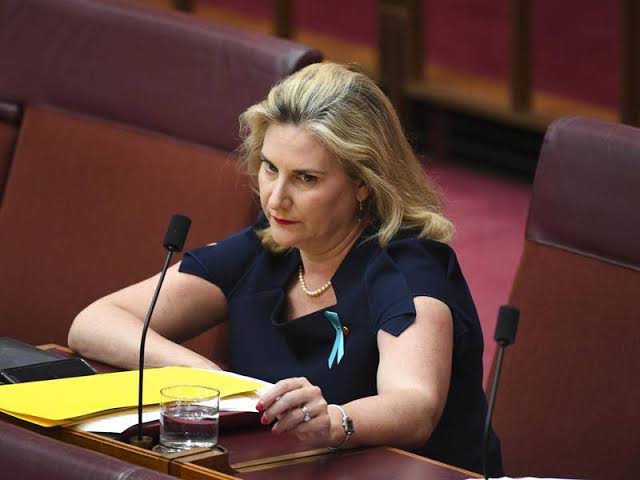“Jenny and I have been blessed; we’ve got two children that don’t – haven’t had to go through that”
Scott Morrison’s attempt at sympathy was really a self-focused account of his perceived fortune. Notwithstanding the difficulties he and his wife had trying to have children, the fact that they were born without disability is a matter of chance not blessing because disability is an inherent part of the human experience.
By chance Senator Hollie Hughes gave birth to a child with disability (autism) but instead of challenging the notion of the blessing of typically developing children she has doubled down on Morrison’s comments and taken the opportunity to launch more commentary about her perceptions of the lives and opinions of Autistic adults.
“For some of these people coming out, people in the autistic community who have been diagnosed in their later life, they didn’t experience the challenges we did as parents in the early days’ says Hughes
She is correct, because parenting an Autistic child is not the same as being Autistic and if she is also implying that we late diagnosed adults didn’t experience the same challenges as Autistic children today she is also partially correct. Growing up with undiagnosed autism is an experience for many Australians and not just those who are perceived as ‘doing ok’ today. Many late diagnosed Autistic adults have a multitude of challenges that are compounded by the lack of a diagnosis in early life. As children we were often labelled ‘behaviourally disturbed’, and our parents were often told it was a result of their failure to parent properly. As children we did not receive supports to understand our differences and difficulties and neither did our parents or the systems that were supposed to support us. The net result of this has been mental ill health and trauma, failure to achieve potential, and enjoy the same quality of life as other Australians. Many adult Autistic people live in poverty, are unemployed, lack housing security, experience ill health and untimely death. All these facts were revealed by the Senator’s own inquiry.
The Senator is also clinging to the idea that some Autistic adults are anti ‘early intervention’ when in fact the discussion is a far more complex one than she asserts here:
“There’s problems around intensive early intervention. A lot of this is driven by the autistic adult community, who suggest using best practice behavioural interventions is somehow torturing those children.”
According to many recent reviews of evidence there is no ‘best practice’ early intervention, all interventions for Autistic children have low quality evidence with the occasional moderate quality outlier. This is because the whole industry has been marred by poor science and conflicts of interest from major financial stakeholders. See this recent article ‘Why autism therapies have an evidence problem’
Autistic people should receive high quality early developmental supports that enable them to learn, grow and thrive and equally parents should be supported to understand and work with their children to achieve the best outcomes.
As a society we understand so much more about autism and much of this understanding comes from Autistic adults.
Conversations about supporting Autistic children, particularly those with complex needs, can be uncomfortable, because we are required to acknowledge that some of the things we did in the past and are doing now are not helpful and may even be harmful. But we need to have these conversations in order to move forward and Autistic people must be included in these conversations. The state of evidence demands rigorous attention and a commitment to further research. The unregulated industry also needs attention via the introduction of quality clinical framework, registration of providers and reporting of outcomes linked to child and family quality of life, participation, inclusion and fulfilment of human rights.
The Senator often says we should walk a mile in the shoes of others like her and seems to fail to see that walking a mile in our shoes might give her the insight she desperately needs.




